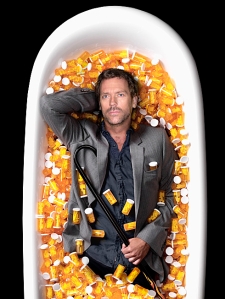An Empirical Quest to Discover… Feelings and Emotions
October 4, 2010
Today’s entry in our ongoing series of guest contributors comes from Bryan Brown, a NonProphet Status reader and undergraduate senior at the University of Rochester. Bryan writes about his journey as a secular humanist and how his understanding of religion has changed over time. Without furter ado, take it away Bryan!
 I wasn’t always the sweet and sensitive secular humanist I am today. I used to see the world through very blunt scientific truths. During my personal journey, I have learned how atheism alone does not define a person’s way of viewing — or being a part of — the world in which he or she lives.
I wasn’t always the sweet and sensitive secular humanist I am today. I used to see the world through very blunt scientific truths. During my personal journey, I have learned how atheism alone does not define a person’s way of viewing — or being a part of — the world in which he or she lives.
A pivotal time in my adolescence was the winter of my sophomore year of high school, during which I went through a bout of depression. In hindsight, it was probably caused in part by lack of sunlight, my first AP class, and raging hormones.
I kept encountering questions of “why” — questions about my source of motivation — and found my lack of faith to be a bump in the road. How could I justify putting so much energy into something that had no concrete, apparent meaning?
And so one cold afternoon in February, I sat down and created a Word document, titling it simply as “The Philosophy.” My goal was to justify life’s meaning, scientifically and rationally, without the use of religion. What I produced was a six-page document that, at the time, seemed satiating. I supported my arguments with scientific principles (within the limitations of my high school curriculum, of course); in a way you could compare it to the Three Laws found in Asimov’s I, Robot collection. What I really did was use deductive reasoning to rationalize an end to my depression.
At the time I felt more confident than ever about my beliefs. I hoped that by aligning my actions with this self-made mould of rationality, I could approach any life problem — academics, friendships, girlfriends — without flaw.
Looking back, I now realize what “The Philosophy” really was. Believing that I had a potent understanding of my universe made me feel powerful and in-control. However, in many social situations, my methods proved unsuccessful. It had become my defense mechanism — my excuse to not regard myself as an emotional human. What initially appeared to be the elegant simplicity of “The Philosophy” ultimately proved to be a blunt instrument. It could easily encourage behavior that was insensitive and self-serving, putting my rationalized life goals above all else.
I think I was afraid that relying on emotional responses was as faith-based as relying on a deity, and therefore reckless. I found myself identifying with a certain archetype of personality found in T.V. and literature; I felt that I was channeling Dr. House from House, Bones from Bones, and even Dr. Manhattan from The Watchmen.
My education at the University of Rochester helped balance all of that out, both in and out of the classroom. When I learned about Freud’s concept of id and ego, it helped me reconceptualize my thoughts on prioritizing conscious reasoning over subconscious urges. My study of anthropology taught me about attention to detail, as well as the exercise of treating one’s own culture as an alien one; it was all that talk about being truly “ethnographic.” I even took a religion course, which helped me analyze religions in an anthropological and non-judgmental way.
Meanwhile, I went through a smattering of social and romantic relationships of all shapes and sizes. Declaring love for somebody scared me for some time; it seemed like a leap of blind faith that was only meant for the religious. My “Philosophy” attempted to define love as something that occurred “when a single stimulus or source becomes associated — consciously and subconsciously — with powerful, positive, simultaneous combinations of synergistically acting viscerogenic and psychogenic responses.”
But in the end it was my actual life experiences that reshaped my secular beliefs, and therefore my entire psychological way of being, into a new and different person. And so during my junior year, as I sat in the on-campus Starbucks among all the caffeine addicts and intellectuals, I felt compelled to open a new Word document.
I poured my thoughts onto the page, combining old truths with my new wisdom, which helped make the whole thing more, well, human-friendly. One of the most important epiphanies I have had is that no matter how much we rationalize the workings of the universe, at the end of our pondering we must reintegrate our ideas into our human culture and experience them.
Would a sunset be less beautiful just because you understood the physics behind its colors? I’d venture that for some this makes the sunset even more intriguing! As for emotions, feelings and the subconscious, they have a place, too. Even if you don’t believe in a soul, and you recognize that all of your emotions are just cocktails of electrochemical signals within your body, you can still appreciate their function in your life. I believe Carl Jung tackles this subject nicely in his work The Shadow, in which he says that the parts of our subconscious that we are sometimes ashamed of must be embraced and transcended, rather than defeated.
Finally, I changed the way I look at religion, as well as atheism. Anthropologically, it is easy to agree that religion, for many people, serves several functions that are integral for a social human world. These include community, tradition, guidance, emotional support, motivation, social activities, networking, and meaning. When I think about it this way, it is easy for me to look “ethnographically” at the religious, and see the ways in which the peaceful theists, especially those engaged in interfaith discourse, can get along fine and do plenty of good in the world.
Meanwhile, I realized that what I want to see most from the secular population is proof that we too can provide community, support and values for one other, rather than spend all of our time criticizing the religions of the world. And so it is from my personal journey and these realizations that I am not only a self-declared atheist; I also have a reason to live, love, and be part of something bigger than myself.
 Bryan Brown is an undergraduate senior at the University of Rochester. As a member of the Rochester Early Medical Scholars Program, he will continue on to the U of R School of Medicine next year. Outside of the classroom, Bryan is also a passionate mandolinist, saxophonist, performer, and composer. While he was raised in a Jewish home, Bryan has been a self-declared atheist for years and has more recently taken a greater interest in secular humanist ideals.
Bryan Brown is an undergraduate senior at the University of Rochester. As a member of the Rochester Early Medical Scholars Program, he will continue on to the U of R School of Medicine next year. Outside of the classroom, Bryan is also a passionate mandolinist, saxophonist, performer, and composer. While he was raised in a Jewish home, Bryan has been a self-declared atheist for years and has more recently taken a greater interest in secular humanist ideals.

Not all atheists have the same trajectory. There are plenty of atheists who show heart, emotion and compassion. Sadly we don’t tend to get credit for it, so even among our own we get criticized for not doing it enough.
But to the point of criticizing religion. To criticize is to care. The very fact that one speaks up against homophobia springing from a religious practice is moral, emotional and care. The very fact that people have issue with the pope’s handling of various topics ranging from condoms in Africa to child abuse cases, is because we feel and care.
The very reason why we draw Muhammad is for empathy for those who fall under threat and harm for expressing difficult opinions.
Even the anti-theism of someone like Hitchens gets mischaracterized. He exactly opposes religion where he sees it as doing harm. That too is compassion and care.
I personally really don’t know many atheists who I would consider anti-humanists.
And atheists do know aesthestics and appreciation for beauty even if others routinely tell us that supposedly we do not have it, and are robot-like.
These are more projections than reality and they are also a misunderstanding of the critiques. For some criticism is insensitive and heartless. But it isn’t necessarily so. Some of the most moving artists around are atheists, but we don’t think of them as that. That perhaps is good, if it wouldn’t allow people to maintain a rather negative stereotype as well.
And secular thinkers have provided community, and values for society for ages. But apparently we keep forgetting it. Some of the leading contemporary ethicists are atheists, some of the leading philanthropes are non-believers too. But it is one of the endearing qualities that we do not wear these things as badge of honor.
After all it’s not because we do this because we want to display that we are “good secular humanists” but rather because one cares.
And the deepest care is the one that is never seen, never praised, and never recounted.
Great post! As a former Evangelical Christian and current secular humanist, it was the lack of a mindful community that lead me to a Unitarian Universalist service the past few weeks. I’ve really appreciated the UU’s non-exclusive and rational worldview coupled with an awareness that all people have emotional, social, and (dare I say?) spiritual needs that can sometimes only be found in community. It’s amazing how much I have missed the ritual portions of Christianity while simultaneously rejecting the doctrine and content of those same rituals. Your post was a much intelligent confirmation of my own need for community. Keep loving and learning!
*much more intelligent confirmation. doh. But you knew that, I’m sure.